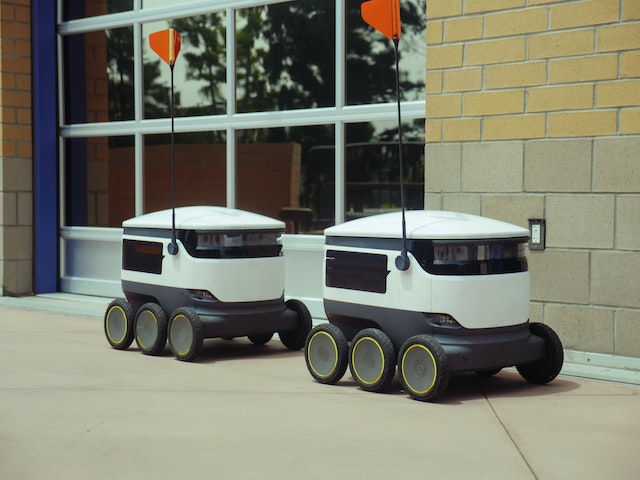The world as we know it is changing and robots are taking over the jobs that once belonged to humans! Yup, you heard it right! The rise of Artificial Intelligence (AI) like ChatGPT and robots in the workforce has got everyone talking and it’s not just idle chatter anymore.
It’s a trend that’s picking up pace and soon enough, we might have robots doing our jobs for us! But, wait a minute, does that mean we’ll all be out of work and sipping margaritas on a beach for the rest of our lives? Not exactly, and here’s why.
White-Collar Jobs: Say Goodbye to Boring Office Work
Gone are the days when office work meant sitting at a desk for 8 hours straight, answering emails, and playing solitaire to pass the time. White-collar jobs, like accountants, lawyers, and software developers, are now at risk of being taken over by AI. A study by Oxford Economics found that almost 50% of white-collar jobs in the US could be automated in the next few decades. And it’s not just the US, countries like Japan and South Korea are already leading the charge with a 60% increase in the use of industrial robots since 2016!
Blue-Collar Jobs: Goodbye to Hard Labor
But wait, it’s not just the white-collar jobs that are at risk. The rise of AI and robots is also affecting the blue-collar jobs like manufacturing and assembly line work. A report by the International Labour Organization found that up to two-thirds of all blue-collar jobs in developing countries are at risk of being taken over by automation. And let’s not forget, robots don’t complain about working long hours or lifting heavy weights. That’s one big advantage for our mechanical friends.
Why Robots are Better at Physical Tasks
It’s not just the lack of complaints that make robots better at physical tasks, they’re also more efficient and precise. Robots don’t tire, get sick, or need a break, making them perfect for repetitive tasks like assembly line work. And let’s not forget the backflips, somersaults, and acrobatics that robots from Boston Dynamics can perform with ease. In comparison, most of us would struggle to do a single backflip!
Universal Basic Income: A Safety Net for the Future
As AI and robots continue to replace human workers, it raises the question of what will happen to those who lose their jobs. Universal Basic Income (UBI) is a solution that’s been proposed to provide a safety net for these people. UBI is a form of social security that provides a basic income to all citizens, regardless of their employment status. Countries like Finland and Canada are already experimenting with UBI pilot programs and it could be the answer to our future job security concerns.
Only The Exceptionals And Geniuses Need to Apply
The job market is undergoing significant changes due to the rapid advance of AI and robotics, and while many jobs are at risk of being automated, there is one group of people who will be relatively safe from this trend: the geniuses of the world. The highly intelligent and innovative people who possess exceptional problem-solving and critical thinking skills will continue to be in high demand in a world where machines are doing more and more of the routine and repetitive tasks.
Geniuses, with their unique combination of creativity, intelligence, and drive, will be at the forefront of developing new technologies and finding new solutions to the problems of our world. They will be the ones creating new jobs and industries, and leading the way in fields such as artificial intelligence, renewable energy, and space exploration. As machines continue to automate more and more jobs, the demand for geniuses will only continue to grow.
The Coming Conflicts Between Rich and Poor
As AI and robots continue to take over more and more jobs, the rich and poor are becoming increasingly polarized, with the rich controlling the means of production and the poor struggling to find work. This growing income inequality could lead to greater conflicts between the two groups and is a real concern for the future. The trend of automation is not going to slow down, and it’s crucial that we take proactive steps to mitigate the negative impact on the less fortunate.
One solution could be for individuals to focus on improving their skills and finding new ways to add value to the workforce. This might include developing new skills, such as programming and data analysis, or exploring alternative career paths that are less likely to be automated, such as education and healthcare. Additionally, there is a growing interest in space exploration and the opportunities that it presents. As the world becomes more crowded and resources become more scarce, exploring new frontiers and developing new technologies could help to off-set the conflicts between the rich and poor.
By looking beyond our planet and exploring the vast reaches of space, we can not only expand our understanding of the universe, but also create new economic opportunities and jobs. As we push the boundaries of what’s possible and continue to develop new technologies, we can ensure that everyone has a chance to contribute to and benefit from the growth of our civilization.
Final Thoughts
The rise of AI and robots in the workforce is not just a trend, it’s a reality that’s happening right now and the impact is significant.
It’s true that robots can perform many physical tasks with ease and efficiency, but it’s important to recognize that they are also making advancements in areas that were once considered the sole domain of humans.
As AI continues to evolve, our skills in creativity and problem-solving will be challenged.
We must not become complacent, as AI is demonstrating its ability to problem-solve and even be creative in areas such as drawing. It’s up to us to embrace these technologies and find ways to continue to develop and hone our unique human abilities.
The future is full of unknowns and challenges, but it’s also full of opportunities. Let’s not be left behind, but instead, let’s take charge and shape the future in ways that benefit us all.




